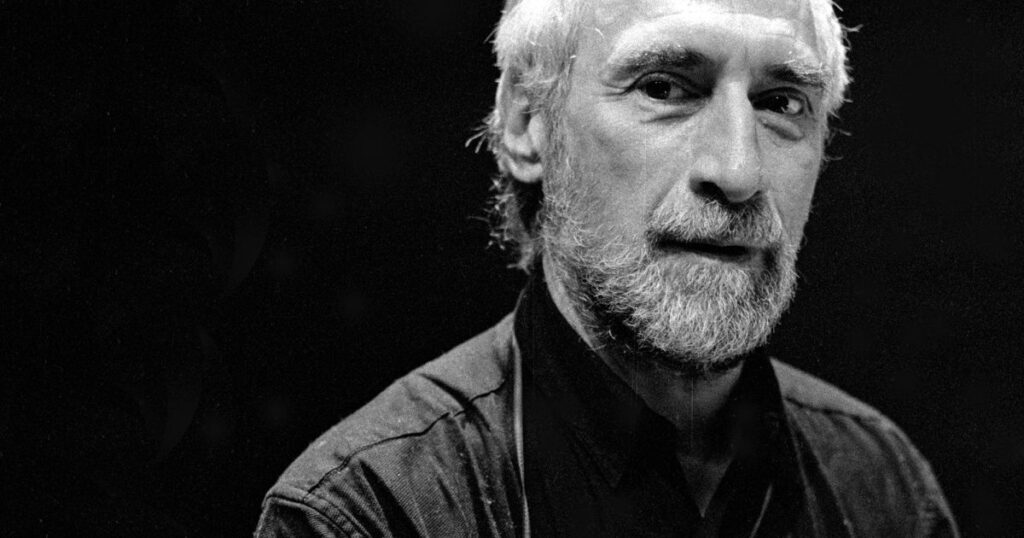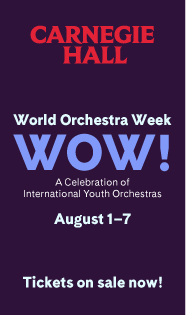14 pianists let Rzewski shine in marathon tribute at Merkin

How many pianists does it take to honor a late, great composer?
If that composer is Frederic Rzewski, of the seemingly inexhaustible imagination and the seemingly impossible technical demands on the player, the answer could be as many as 14.
That’s how many pianists convened at Merkin Hall Saturday afternoon and evening for a one-day, three-concert series titled “The Pianists United: Rzewski in New York.” Anthony de Mare and Lisa Moore organized, and performed in, the marathon of 18 pieces by the American composer, who died in 2021 at age 83.
If it’s a pardonable exaggeration to write, as de Mare and Moore did, that “most pianists play (or want to play) at least one work by Frederic Rzewski,” his love and understanding of the instrument have brought players out on prior occasions as well, including a Rzewski festival in Brooklyn in 2018.
Himself an eloquent performer of his own music, Rzewski also dedicated works to other pianists, some of whom were on hand Saturday to give authoritative performances of “their” pieces.
Highlights of the occasion included Ursula Oppens performing Friendship, written for her shortly before the composer’s death, confirming once again her place as the sovereign interpreter of contemporary piano music; and Conrad Tao closing the festival with a volcanic performance of Rzewski’s magnum opus, The People United Will Never Be Defeated!, an hour-plus marathon in itself.
But the caliber of the performances was uniformly high, affording many perspectives on the composer’s restless, questing mind, his love of all kinds of music from work songs to jazz to whatever comes under the heading “classical,” and his passion for social justice.
Protesters singing “This Little Light of Mine” at a nuclear-weapons lab inspired pianist Carl Patrick Bolleia to suggest a piece to Rzewski, who responded in 2019 with Let It Shine, a muscular scherzando with bluesy inflections. Bolleia’s volatile performance kick-started Saturday’s marathon in classic Rzewski fashion.
Another of the composer’s last works, the Suite of 2021, burst its Baroque model with stark contrasts of percussive and gentle touch, clusters all over the keyboard, and a kind of demented courante, energetically rendered by Aron Kallay.
A rock garden in Kyoto inspired the 1988 piece The Turtle and the Crane. Vicki Ray’s multicolored rendering Saturday captured the long and winding meditation that grew out of a single fast-repeating note.
Rzewski composed the Short Fantasy on “Give Peace a Chance” in 1989, and later revised it as simply Fantasy. Jed Distler asked for and got permission to perform the original version, which he did Saturday amid bell chords, Mussorgskian trills, jazz ballad sonorities, and more.
Amid the sudden contrasts and Harlequinesque acrobatics of Friendship, Oppens’s eye for detail, vibrant touch, and quicksilver color changes showed why she is in a class by herself with this kind of repertoire.
As if Rzewski’s digital demands weren’t enough, some of his pieces require the pianist to vocalize while executing his complex scores. In Rubinstein in Berlin, Nacho Ojeda ably accompanied himself speaking early passages from Arthur Rubinstein’s memoirs, recalling the teenage pianist’s fear, loneliness and moments of sudden insight in the German capital.
Isabelle O’Connell launched the second program with two excerpts, “Mile 5” and “Mile 7,” from Rzewski’s five-hour epic The Road, featuring chords and clusters at play all around the keyboard, a whistling pianist, and a knocking, slapping drum solo on the body of the instrument.
The modestly-titled Piano Piece No. 3 of 1977 was in fact a grand tour of the piano, with echoes of Debussy bell pieces, Chopin etudes, Scriabin sonatas, folksongs, and much else, indefatigably performed by Kathleen Supové.
Rzewski composed Amoramaro in 2020 as a birthday gift to Lisa Moore, who on Saturday rendered its mellow phrases, coruscating trills, “three hand” effects and brash interruptions with love and aplomb.
Moore followed up with To His Coy Mistress, a 1988 setting of the famous Andrew Marvell poem, playing Rzewski’s attractive tune and singing along with it in a firm, deliberately simple voice.
The Four North American Ballads, composed in 1978-79 and one of Rzewski’s major achievements, brought on four pianists in vibrant performances: David Friend playing cantabile phrases in an una corda haze, then sonorous octaves in “Dreadful Memories”; Mikael Darmanie (in working man’s clothes of hoodie and ball cap) turning the union song “Which Side Are You On?” into cascading canons and frantic Lisztian pyrotechnics; Supové with a lusty setting of “Down by the Riverside,” decorated with exuberant clusters and still more canons; and Blair McMillen in the showpiece “Winnsboro Cotton Mill Blues,” tirelessly delivering its rumbling millworks ostinato and triumphantly ringing out its man-over-machine folksong.
In Saturday’s final program, Moore returned to play the appetizer, Piano Piece No. 4, beginning and ending in a blur of fast repeated notes and venturing widely and athletically, sometimes miked and looped as a sort of electronic damper pedal.
In a program note, pianist de Mare claimed credit for suggesting a large work for a speaking and playing pianist to Rzewski, the result being De Profundis of 1991-92. In a mind-boggling one-man melodrama, de Mare dramatically narrated excerpts of Oscar Wilde’s letter from Reading Gaol and made nonverbal vocalizations while playing melodious phrases, racing from end to end of the keyboard, and drumming on both the piano’s body and his own.
Tao’s performance of The People United was also mind-boggling in its physicality—the pianist frequently bounded off the bench, then had to reposition it when he had a hand free, which wasn’t often—and the complexity of the piano textures, which Tao rendered with admirable clarity.
The work’s 36 variations on a jaunty Chilean protest song began to sound like 136 as Lisztian climax followed Lisztian climax, tiring the ear. But Tao also could soften up and caress a phrase, and connoisseurs of piano variations could enjoy the passages inspired by Bach’s “Goldberg,” Beethoven’s “Diabelli” and Brahms’s “Handel.”
In any case, Tao’s indomitable performance epitomized—if something over an hour long can be called an epitome—the spirit of the occasion, a Fred Rzewski-like determination to come together over a great body of work, and let it shine.
